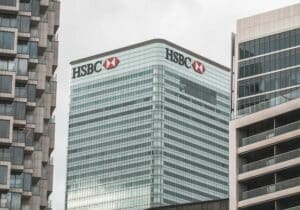
For individual investors, banks serve as custodians of savings and providers of loans, while for large businesses, they offer sophisticated financial solutions and credit facilities crucial for growth and expansion. For all clientele, the best banks in the world not only excel in providing secure and efficient financial services but also demonstrate a deep commitment to customer satisfaction and innovation.
The ability of the best financial institutions to adapt to evolving market trends, leverage cutting-edge technology, and navigate complex regulatory landscapes sets them apart as pillars of stability and progress in the global financial ecosystem.
From financial stability to technological innovation, the world’s best banks in 2024 wield immense influence on the global economy and individual financial well-being. This article will explore the world’s leading banks that have earned a reputation for excellence in services, trustworthiness, and innovation.
Global banks such as BNP Paribas in France, Bank of America in the US, and ANZ Group in Australia have earned reputations as the top financial institutions for investment banking, consumer banking, and wealth management activities. We’ll look at the leading consumer and investment banks that offer clients competitive advantages.
Six Factors for Evaluating the Best Banks
When evaluating the best banks for various purposes and clientele, several key factors come into play, reflecting their overall performance for national and global finance and suitability for different customers. Six factors include:
Financial stability
A bank’s bread and butter is its ability to prove that it can maintain financial stability in adverse economic conditions. Whether it’s a large multinational bank or a small private bank, the principal is the same–to safeguard and manage funds with prudence and resilience. This cornerstone principle ensures that its primary function remains consistent regardless of the institution’s size or reach.
Weathering economic fluctuations and downturns in the national or world economy to continue providing a secure financial foundation to customers is a clear sign of financial stability. This reliability is not only a testament to a bank’s strength and competency in risk management but the bedrock of trust that underpins the broader financial system.
When the largest bank in the US, Bank of America, and the bank with the largest market cap, JPMorgan Chase, required government bailouts in the 2008 financial crisis, it shook the very foundation of trust in the banking sector. These iconic institutions, considered too big to fail, faced enormous challenges that sent shockwaves through the global financial landscape.
This period underscored the critical importance of financial stability, not only for individual banks but for the overall health and resilience of the entire financial system. It served as a stark reminder that the bread and butter of the banking industry is maintaining an unwavering commitment to stability and accountability.
Reputation and trustworthiness
If financial stability is the bread and butter for successful banks, reputation, and trustworthiness could be considered the backbone the best banking brands use to retain and increase their customer base. A solid reputation is a sign of reliability, drawing in clients who seek assurance and dependability in their financial services company and banking services.

The 2016 Wells Fargo cross-selling scandal involved widespread fraudulent practices within the bank’s retail banking services. It was discovered that employees had opened millions of unauthorized bank accounts, including checking and savings accounts, credit cards, and other financial products, without customers’ knowledge or consent.
This unethical practice was driven by aggressive sales targets and incentives set by the bank’s management, pressuring employees to meet unrealistic goals. Some employees resorted to fraudulent tactics to meet these quotas, such as forging signatures and creating fake email addresses.
This was a profound hit to Wells Fargo’s reputation and trustworthiness in the consumer banking industry, resulting in a significant dip in public trust that will take decades to rebuild.
Customer service and experience
In today’s business landscape, there is a growing emphasis on the overall user experience. Delivering top-notch customer service, ensuring accessibility, and creating a positive banking experience are vital for client satisfaction.
Whether clients are engaged in consumer, investment, or commercial banking, the ultimate objective remains consistent: ensuring that banking tasks can be completed efficiently and with minimal stress and steps.
Many customers will evaluate banks based on how well they align with their financial needs and simplify transaction banking and other everyday banking processes. Simplification often involves streamlining procedures and minimizing bureaucratic hurdles.
Range of services
Banks play a pivotal role in modern society, and the convenience of having a single location for all banking activities is a preference shared by most customers. While there may be specific situations where it makes sense to use different financial institutions for capital investment, personal loans, mobile banking, and savings accounts, frequent switching between institutions often stems from one bank lacking certain services offered by another.
The best consumer bank will have a diverse and comprehensive list of services, including wealth management, personal loans, investment options, and mobile banking solutions. This ensures customers can access various financial tools and resources, allowing them to manage their finances effectively.
On the other hand, a niche bank, like an investment bank, may center its services primarily around investment banking. However, the best investment bank will present a wide range of tools, options, and benefits associated with investment.
Technological advancements
Technology evolves rapidly, and integrating cutting-edge tools like online banking, mobile apps, and digital payment systems not only boosts accessibility and convenience but propels you ahead of the curve in terms of what you can achieve and deliver.
This is clearly seen in the widespread adoption of blockchain technology and cryptocurrencies rather than stubbornly clinging to conventional retail and commercial banking, asset management, and record-keeping practices. This shift represents a fundamental reimagining of how we approach and conduct transactions in the digital age, paving the way for increased security, transparency, and efficiency in the most forward-thinking banks in the world.
Barclays became the first bank in the UK to support cryptocurrency, setting a significant milestone in the financial industry. This move by Barclays signifies a recognition of the evolving landscape of finance and a proactive step towards embracing the potential benefits of digital currencies. By supporting cryptocurrency, Barclays is not only positioning itself at the forefront of innovation but is also aligning with the preferences of the next generation of tech-savvy consumers.
Security measures

Robust security protocols are essential for trust and confidence and serve as a critical defense against cyber threats and unauthorized access. As more sensitive information is stored in the cloud, ensuring the highest level of security has become a non-negotiable priority for financial institutions.
This includes employing advanced encryption methods, multi-factor authentication, and regular security audits to fortify the protective layers around sensitive financial data. The 2019 Capital One data breach was particularly egregious due to its scale and the sensitivity of the information compromised.
With over 100 million individuals affected in the United States and Canada, it ranks among the largest data breaches in history. The stolen data included highly sensitive information such as names, addresses, credit scores, and social security numbers.
This type of data is instrumental in a wide array of financial transactions, making it exceptionally valuable to cybercriminals for identity theft and fraud.
Credit rating
Like retail consumers and corporations, banks also have credit ratings, which is crucial in assessing the quality of a bank because it provides a comprehensive evaluation of the institution’s financial health and stability. A higher credit rating indicates that a bank is less likely to default on its financial commitments, making it a safer and more reliable choice for customers.
This is particularly important for individuals and businesses seeking to entrust their savings, investments, and financial transfers to a bank. A strong credit rating also reflects the bank’s ability to manage risks effectively and weather economic downturns–essential for maintaining trust and confidence among its clients.
Moreover, a favorable credit rating can enable a bank to secure financing at more favorable terms, allowing it to invest in technological advancements, expand its service offerings, and deliver improved customer service.
Identifying the best global investment bank or optimal choice for commercial banking requires thoroughly assessing the entire banking landscape and how all elements converge to create a positive banking experience. This can include evaluating additional factors such as regulatory compliance and community and social responsibility.
Considering these factors facilitates easier decision-making when choosing a bank that aligns with specific financial goals and preferences.
The World's Best Banks
Global Finance Magazine curated the best banks in the world list. Global and private-sector banks are typically preferred among experts. The goal is to highlight the most reliable banks that cater to both corporate and retail clients as well as individuals such as real estate investors.
The list of best banks of 2022
Ranking | Bank | Country/Region |
World best bank | DBS | Singapore |
World's best corporate bank | JPMorgan Chase | United States |
World's best consumer bank | CaixaBank | Spain |
World's best emerging markets bank | HSBC | United Kingdom |
World's best frontier markets bank | Société Générale | France |
Best global transaction bank | BNP Paribas | France |
World's best sub-custodian bank | CIBC Mellon | Canada |
Best bank for sustainable finance | Société Générale | France |
Best Islamic financial institution | Kuwait Finance House | Middle East |
Best investment bank | Goldman Sachs | United States |
Best cash management bank | Citi | United States |
Best trade finance provider bank | BNP Paribas | France |
Best supply chain finance provider | Citi | United States |
Best foreign exchange provider | BBVA | Spain |
World's best private bank | JPMorgan Chase | United States |
World's best SME bank | UOB | Singapore |
DBS
The Singapore-headquartered international bank, DBS Bank, was named the world’s best bank in 2022. Founded in 1968, Singapore’s largest bank has since expanded to 19 countries, offering a range of retail banking services from consumer banking to investment banking.
The international bank has gained recognition for its technology-driven approach, enabling it to enhance its services and provide customers with current and accurate analytics.
JPMorgan Chase
JPMorgan Chase has since recovered from its financial woes in 2008, being named the world’s best corporate bank. It is an American multinational investment bank with headquarters in New York. As a big player in global finance, it is considered one of the world’s largest banking institutions and boasts the largest market cap.
Clients attest to its comprehensive one-stop-shop approach, offering access to all essential services in one location. Among them are investment banking, lending, and specialist trust and estate consultations.
Furthermore, JPMorgan won best private bank for 2022, attesting to it being one of the few banks in the world to have made private banking a reportable segment. The company’s quarterly financial reports are made public and paint an impressive financial picture.
CaixaBank
The world’s best bank for consumers was named Spain’s CaixaBank. Headquartered in Valencia, the commercial bank operates worldwide.
CaixaBank boasts over 20 million clients, around 3 million of which use the bank’s online platform daily. While CaixaBank strongly emphasizes its online presence, it has opted to retain its physical branch network, particularly in areas where it is the sole banking option.
Being at the forefront of technological advancements, this international bank was an early adopter of biometrics. Its ATMs are equipped with facial recognition, allowing contactless transactions like cash withdrawals.
HSBC

In 2021, the industrial and commercial bank concentrated on its primary markets and, as a result, achieved a profit of $18.9 billion, marking an 87 percent increase compared to the previous year.
HSBC further expanded its portfolio by acquiring AXA Singapore and a substantial share of the Indian mutual fund company L&T Investment Management. The bank also aims to acquire the remaining stake of HSBC Life China.
Société Générale
The French bank Société Générale won the title of the world’s best frontier markets bank. With a history spanning over 160 years, it has established a presence in over 50 countries. From 2021 to 2022, the bank’s international retail banking net income surged to €5 billion, while its corporate banking division saw an increase to €2.2 billion.
Société Générale is now working in collaboration with international partners to improve banking infrastructure in Africa. For instance, the global bank has implemented online payment options in Morocco, introduced web-based banking services in Algeria, and set up secure host-to-host connections through secure file transfer protocol in Algeria, Ivory Coast, and other African regions.
Société Générale also received the accolade of best bank for sustainable finance, setting the pace with sustainability-linked bonds (SLBs) and spearheading social bonds in the Asia-Pacific region. The bank has actively participated in sustainable project finance ventures in African countries like Benin, Angola, and Senegal.
BNP Paribas
Continuing the trend with French banks, BNP Paribas was ranked the best global transaction bank in the world. The financial services company based in Paris has a presence in almost 60 countries. The bank has gained recognition for using advanced technologies and reengineering processes to increase efficiency, improve the user experience, and provide transparency.
Furthermore, BNP Paribas clinched the title of 2022’s best bank for trade finance due to its extensive range of trade finance services and solutions, showcasing both breadth and depth in commercial banking.
As a market leader in Europe with an established presence in the Asia-Pacific region and the Americas, BNP boasts a team of over 350 trade finance specialists operating across 100 trade centers supporting clients with their trade finance operations.
CIBC Mellon
Named the world’s best sub-custodian bank for 2022, CIBC Mellon is a Canadian-based international bank that focuses on the investment servicing needs of investors in Canada and internationally. Its services include multicurrency accounting, pension services, fund administration, exchange-traded fund services, foreign currency exchange processing and settlement, treasury services, and securities services.
Kuwait Finance House
Kuwait Finance House (KFH), a leading institution in the Islamic financing sector, clinched the title of the world’s best Islamic financial institution in 2022 thanks to its robust operating performance. Its strategic investments in innovative technology and the successful launch of new products and services further bolstered this achievement.
The bank’s clientele spans across countries within the Gulf Cooperation Council (GCC) and Asian and European nations, facilitated through an extensive distribution network. Additionally, it maintains subsidiaries in Kuwait, Turkey, Bahrain, Malaysia, and Germany.
Goldman Sachs
Goldman Sachs won the title of best investment bank for 2022. A large multinational investment bank and financial services company based in New York, it has regional offices in several prominent cities worldwide, including Warsaw, London, Hong Kong, and Tokyo.
The global investment bank is well-known for its robust advisory services and keen market insights. The bank saw an unprecedented surge in corporate and investment banking transactions, encompassing its corporate and institutional clientele’s debt, equity, and advisory activities.
Citi

Securing the global award for best supply chain finance provider is not solely based on the number of markets served or the quantity of supply chain finance programs a provider endorses.
With one of the world’s most expansive transaction banking networks, Citi is backed by impressive metrics on both fronts and has the agility to swiftly scale and implement its services as supply chains adapt to evolving business conditions.
BBVA
BBVA’s success as the best foreign exchange provider in 2022 is attributed to its model of ‘world presence, local specialization,’ which led to its outstanding performance in the foreign exchange market. With its headquarters in Spain and global capabilities in its trading and sales hubs on four continents, the Spanish powerhouse generated approximately $1.5 trillion in global FX volume for 2021.
UOB
The Singapore-headquartered United Overseas Bank earned its accolade for the best SME bank due to its support of its SME clients during the COVID-19 pandemic.
Drawing on over 80 years of experience, the corporate and commercial bank applied the insights gained from successfully navigating the 1997 Asian financial crisis and the global 2008 financial crisis. The bank initiated pandemic relief measures in February 2020 by announcing SGD 3 billion (about $2.2 billion) in assistance for its SME clients.
The Best Banks by Region
Global Finance Magazine also ranked the best worldwide banks by region, providing valuable insights into the financial institutions that excel in specific geographic areas.
Region | Bank |
Africa | Standard Bank |
Asia-Pacific | DBS |
Central and Eastern Europe | OTP Bank |
Latin America | Banco Bradesco |
Caribbean | Banco Popular Dominicano |
Central America | BAC Credomatic |
Middle East | Arab Bank |
North America | Bank of America |
Western Europe | CaixaBank |
US regional banks | BMO Harris Bank |
Opening an Offshore Bank Account through Second Citizenship or Residence
Although numerous major banks have global operations, providing retail and institutional clients the ability to conduct business abroad, having residency or citizenship generally simplifies offshore banking.
Regional laws restrict certain banks, while the challenge of thoroughly vetting non-residents or non-citizens may conflict with their internal policies; others require additional documents such as recommendation letters or restrictive conditions, such as the requirement to open a personal and business account.
Investing in a country’s economy offers a streamlined path to residency or citizenship. In certain countries, you can achieve both goals by depositing money in a national bank, which serves as a qualifying investment for their economic visa program.
Foreigners can qualify for the Spain Golden Visa with a deposit of €1 million in a Spanish bank account, which must be maintained for five years. Depositing $500,000 in a Turkish bank account for three years will qualify foreign nationals to obtain Turkey citizenship by investment.
At Global Citizenship Solutions, we specialize in guiding individuals through the intricacies of these investment programs and offshore banking. Our expert team provides comprehensive support, from initial consultations to document preparation and submission, making the journey towards your new global status as smooth as possible.

Frequently Asked Questions about the World's Best Banks
What is the largest bank in the world?
According to Investopedia, the Industrial and Commercial Bank of China Limited is the largest bank in the world in terms of total assets under management and gross revenues. When considering the largest market cap, the largest bank in the world would be JPMorgan Chase.
Which is the strongest bank in the world?
Determining the “strongest” bank in the world can be subjective and depends on the criteria used for evaluation. Organizations and analysts may use various metrics, including assets, profitability, stability, and global presence, to assess a bank’s strength.
Some of the strongest banks in the world with the most financial strength include the Industrial and Commercial Bank of China Ltd due to its total assets under management and gross revenues, and JP Morgan Chase, with the highest market value.
Bank of America is also considered one of the strongest banks, being the largest private investor in institutions that finance community development. On the other hand, the Agricultural Bank of China has many institutional clients and tens of thousands of branches.
Which country has the strongest banking system?
The Banking System Z-Score is a statistical metric created to assess the financial health and stability of a country’s banking system. According to TheGlobalEconomy, Luxembourg was determined to have the highest z-score rating.
Which is the safest bank in the world?
According to Global Finance Magazine, the German bank KfW was ranked the safest bank in the world. Zuercher Kantonalbank in Switzerland came in second.
Which country has the easiest banking system?
The easiest banking system depends on which factors you consider. For example, some countries are known for their advanced online banking services, making digital transactions seamless. Others may have straightforward processes for opening accounts or obtaining credit.
Belize is considered to have the easiest banking system for many, as foreign nationals can easily open offshore bank accounts without requiring large deposits. The United States has some of the best banks in the world, many of which have advanced digital platforms for online payment offerings and better cash management.


